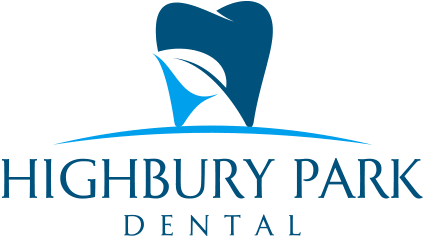Stress, Sleep Issues, and Diet All Contribute to Frustrating Bruxism
Do you find yourself waking up with an aching jaw? You might be grinding your teeth at night.
Many people aren’t even aware that they’re grinding their teeth until someone else tells them, because it happens when they are deep asleep.
If you’re grinding your teeth, it’s important to address the issue quickly. Otherwise, you could damage your teeth, leading to an expensive and time-consuming fix.
But before you can treat teeth grinding (otherwise known as bruxism), you need to understand what causes it.
What Causes Teeth Grinding/Bruxism?
Teeth grinding, or bruxism, can happen for a variety of reasons. Typically, though, the most common cause of grinding is stress and anxiety.
Let’s take a closer look at some of the leading causes of bruxism.
Stress and Anxiety
Do you ever feel so stressed or anxious that you start to feel physically tense? It’s not just in your head, it’s actually having an effect on your body, too!
Grinding teeth can happen due to internalized stress and anxiety, which leads to tense muscles, bad dreams, and difficulty sleeping.
Stress and anxiety also lead to poor sleep, which can ultimately cause other health issues. If you find yourself clenching your jaw due to stress, it’s likely that you need to address the stress in order to alleviate your bruxism.
Diet
Diet can also play a major role in teeth grinding, especially if you’re consuming things like caffeine. Caffeine is a stimulant that can make it difficult to sleep and increases your anxiety and tension.
Notice a theme here?
Alcohol, meanwhile, is a depressant that can have the same effect, as it’s a psychoactive substance. Even smoking tobacco frequently can cause teeth grinding.
Sleep Apnea
Sleep apnea is a frustrating disorder that prevents you from getting a good night’s sleep, thus adding to your overall exhaustion, anxiety, and stress.
The most common form of sleep apnea is an obstruction of your airways and breathing patterns. Your breathing is obstructed, even briefly, and you wake up abruptly.
And, as with our above examples, this all leads to increased stress as your body struggles to keep up without getting a good night’s sleep. In turn, this can contribute to bruxism.
Thankfully, there are several lifestyle changes you can make that can help reduce the likelihood of sleep apnea. Failing that, extreme cases can be managed with a CPAP machine, that helps regulate your breathing while you sleep.
Why is Teeth Grinding Harmful?
When you grind your teeth, you exert an extraordinary amount of pressure on them. Over time, your teeth will wear down and the enamel will become weak, making your teeth extremely vulnerable to cavities and damage.
Your teeth may also crack, which could necessitate a painful and expensive root canal. You may not even realize how much you’re grinding your teeth, as you’ll be in deep sleep when doing so.
Bruxism can also lead to muscle disorders, such as TMJ Disorder. TMJ (Temporomandibular Joint) Disorder is caused when the muscles in your jaw are misaligned and is often found alongside bruxism.
This disorder can make it extremely painful to open your jaw at all, and those with advanced cases of TMJ may find themselves unable to speak or eat properly. Some patients experience debilitating migraines, too.
How to Stop Grinding Teeth
As there are many causes for bruxism, there are also many solutions. Some focus on lifestyle changes, while others use equipment or direct treatment.
Changing Your Habits
As mentioned earlier, teeth grinding can occur because you have bad sleeping habits, aren’t exercising or are generally not taking care of your health. The good news is that making positive, healthy changes to your lifestyle can yield big results.
For example, losing weight can help alleviate some sleep apnea issues, and making changes to your diet can help reduce the amount of stress and anxiety you deal with on a regular basis. A few early nights can do wonders for your sleep.
Relaxation Techniques
If something specific is causing stress in your life (such as work-related or school-related stress), it may be time to address those concerns.
Whether you engage in counseling or reduce your workload, you may need to tackle the stress at its source.
Don’t ignore the positive benefits of self-care, either! Take a day off and simply focus on being good to yourself to help reduce stress.
Mouth Guards and Other Gear
A mouth guard for teeth grinding fits into your mouth to prevent you from hurting yourself.
Often, this is the most direct and easy solution. While you can’t always control your stress levels, a mouth guard will always be able to prevent damage to your teeth.
Regardless of the cause of bruxism, a mouth guard can help. What a mouth guard can’t stop, though, is the muscle tension around your jaw, which can cause issues in itself.
As you can see, you might have to try several tactics to reduce your bruxism. The most important element is getting professional help. A dental specialist will be able to give you the tools you need to tackle the problem.
Teeth grinding may seem harmless at first, but it’s actually a serious issue that worsens over time.
If you’ve been told that you’re grinding your teeth at night (or suspect it, due to a sore jaw or teeth), it’s important that you consult with a dental office as soon as possible. Make an appointment at Highbury Park Dental today to get started!

